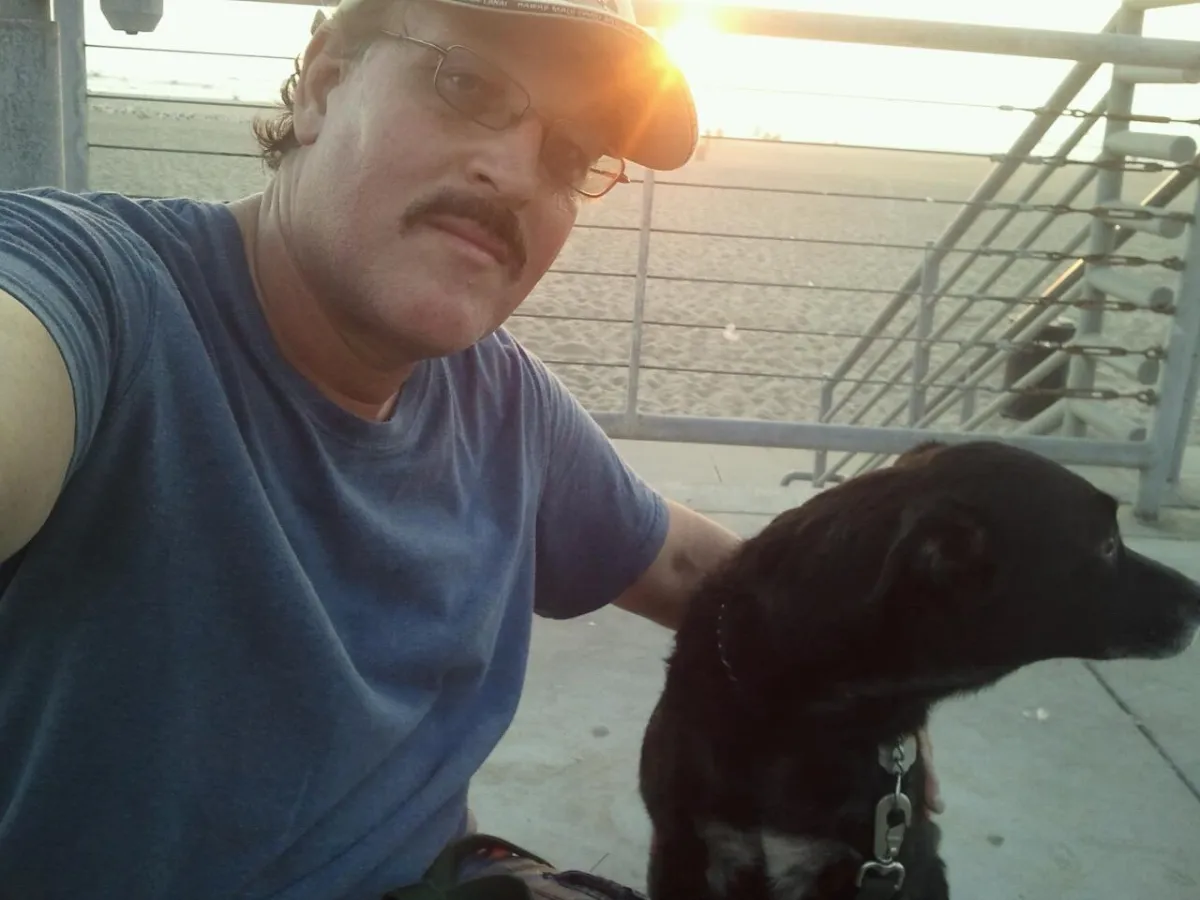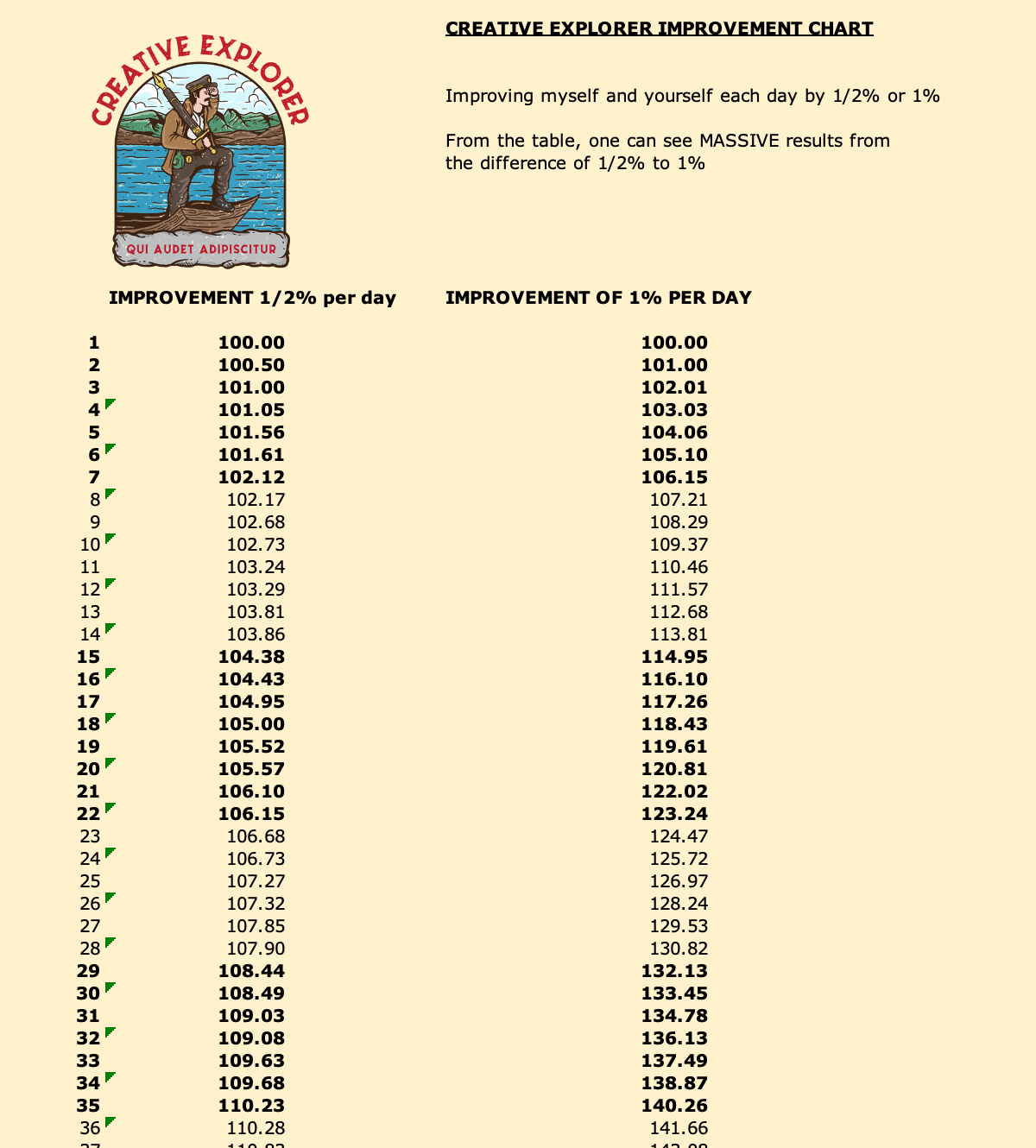
CreativeExplorer-MichaelMandaville.com
I work in Film. I live in Martial Arts. I thrive in Imagination.
Filmmaking & Writing
Scholar Warrior Way
Current Events

Actiongram: What is My Inner Critic?
Actiongram: Your "Inner Critic" is the voice in your head that every human lives with. Originally, a survival mechanism for life and death decision making, the Inner Critic voice will criticize our heartfelt goals. But you balance it with the Experiencer. How?
Before undertaking any critical questions like “What is my Powerful Why” or an empowering identity or anything else, we need to discuss your Inner Voice.
This is also called your “Inner Critic” though I like to call it my “Inner Roommate”. Now you know this Inner Critic well. We all do.
Let’s define our “Inner Critic” as An Inner Voice which continuously observes, monitors, and evaluates their actions. This Self-criticism is an automatic, unconscious psychological element that all humans have.
A useful and helpful Inner Critic gives us solid advice and introspection.
However, if we have an Inner Critic that is harsh and hypercritical demanding a lot from us, then this leads to destructive self-criticism or self-reflection which can cause depression, anxiety, PTSD and even a feeling more common than you think of “I’m not good enough.” Or “I don’t deserve this.”
The first step is your awareness of this Inner Voice.
Simple awareness. When you are undertaking an action or taking a risk and you hear this Inner Voice, then recognize it. Tell yourself: “Oh there’s that Inner Voice.”
But this Now this Inner Critic does serve you well in keeping you safe by reflecting on your actions for safety. Many people with a positive Inner Critic will push themselves into calculated risks and succeed. They will consistently improve.
However, if your Inner Critic rages too much, then you get rising anxiety fear of failure, and unhealthy comparisons with others. You can artificially raise your expectations with this voice and
They may turn to self-criticism as a strategy to amplify their efforts and stand out at work, convinced that their self-improving form of self-criticism contributes to their success. However, this approach backfires when people find themselves unable to meet the expectations. When not met with success, one often faces profound feelings of inadequacy and worthlessness.
The second key is to see yourself in two parts. Yes, you have this Inner Critic but you also have your Experiencer.
The Experiencer lives in the moment, has flow, takes in the moment, desires and more. The experiences knows what is right and this is a more intuitive self. The Inner Critic is analyzing and grading and criticizing too. With a smart balance, these two sides are a good team.
But if your Experiencer wants to fulfill a dream and take a risk - even a calculated one or perhaps a silly one - then the Inner Critic steps in and gives you all the reasons why it won’t work. Do any of these sound familiar?
“You’re not good enough.” “This won’t work.” “You don’t have enough skills or smarts or good looks.”
Realize this: Every human being, even the most successful on the planet, has this Inner Critic. Elon Musk, Marie Curie, John Wayne, Humphrey Bogart, Thomas Jefferson, Abraham Lincoln, Napoleon, Ernest Hemingway.
The Inner Critic Processes
In many cases, the Inner Critic sets the bar and the expectations for our efforts in our work, home with friends and more. When your Experiencer falls shorts, then the Inner Critic jumps on your case with feelings of anxiety, inadequacy and more.
Worse, when you have genuine human feelings that you should process, the Inner Critic squashes them like a bug on a windshield as ‘bad’ or ‘wrong’.
Your authentic Experiencer self may genuinely want to accomplish something in a true way.
Perhaps it’s learning a language, going to college, learning programming, becoming a professional sportsman or any activity where criticism comes out.
But the your Inner Critic jumps right in your path to say that your genuine needs or wants have a limit or are not possible.
Bruce Lee had a great quote:
“Don't speak negatively about yourself, even as a joke. Your body doesn't know the difference. Words are energy and they cast spells, that's why it's called spelling. Change the way you speak about yourself, and you can change your life.”
― Bruce Lee
People say that Words will Manifest a Reality
I personally believe that is true. We actually don’t think in terms of actual letters in words but what they represent in terms of visual and emotional imagery.
Think about the struggle and conflict between the Authentic Experience and the Inner Critic. “I’d like to do this…but I’m not good enough…so I won’t.”
The Inner Critic uses blanket language like “always,” “everybody,” “nobody,” and “never”. We just did the exercise on awareness. Are you aware of these words with the Inner Critic?
The Inner Critic also uses a lot of conditionals. If you do X, then you will get Y.
“If you work hard, then you will be loved.”
“If you lose weight, then you will be happy.”
“If I don’t say what I’m thinking, I will be liked.”
The hyperactive and dangerous Inner Critic has a lot of self-talk and trash talk, putting oneself down.
This creates a vicious downward spiral of frustration, anger, depression and self-contempt.
Now I said in the beginning that I call this my Inner Roommate. Why? Well, this person and voice is always going to be there - in my head - eating my food, listening to TV at all hours and giving me unsolicited advice. But occasionally insightful advice. So I say ‘thank you’ get along and keep moving. That label works for me.
Assignment: Awareness and Recognition of that Inner Critic.
Using your notebook, write down what your Inner Critic says to you. You will be amazed how quickly you recognize this Inner Critic voice. Do this for a few days and pretty soon you’ll be saying. “There goes my Inner Critic telling me I’m not smart enough, quick enough…anything enough.”
Awareness was the first step for me and giving it this name of “Inner Roommate” dramatically improved my mood, my understanding and my ability to take authentic risks toward my goals.
REFERENCES & READING:

Actiongram: What is My Inner Critic?
Actiongram: Your "Inner Critic" is the voice in your head that every human lives with. Originally, a survival mechanism for life and death decision making, the Inner Critic voice will criticize our heartfelt goals. But you balance it with the Experiencer. How?
Before undertaking any critical questions like “What is my Powerful Why” or an empowering identity or anything else, we need to discuss your Inner Voice.
This is also called your “Inner Critic” though I like to call it my “Inner Roommate”. Now you know this Inner Critic well. We all do.
Let’s define our “Inner Critic” as An Inner Voice which continuously observes, monitors, and evaluates their actions. This Self-criticism is an automatic, unconscious psychological element that all humans have.
A useful and helpful Inner Critic gives us solid advice and introspection.
However, if we have an Inner Critic that is harsh and hypercritical demanding a lot from us, then this leads to destructive self-criticism or self-reflection which can cause depression, anxiety, PTSD and even a feeling more common than you think of “I’m not good enough.” Or “I don’t deserve this.”
The first step is your awareness of this Inner Voice.
Simple awareness. When you are undertaking an action or taking a risk and you hear this Inner Voice, then recognize it. Tell yourself: “Oh there’s that Inner Voice.”
But this Now this Inner Critic does serve you well in keeping you safe by reflecting on your actions for safety. Many people with a positive Inner Critic will push themselves into calculated risks and succeed. They will consistently improve.
However, if your Inner Critic rages too much, then you get rising anxiety fear of failure, and unhealthy comparisons with others. You can artificially raise your expectations with this voice and
They may turn to self-criticism as a strategy to amplify their efforts and stand out at work, convinced that their self-improving form of self-criticism contributes to their success. However, this approach backfires when people find themselves unable to meet the expectations. When not met with success, one often faces profound feelings of inadequacy and worthlessness.
The second key is to see yourself in two parts. Yes, you have this Inner Critic but you also have your Experiencer.
The Experiencer lives in the moment, has flow, takes in the moment, desires and more. The experiences knows what is right and this is a more intuitive self. The Inner Critic is analyzing and grading and criticizing too. With a smart balance, these two sides are a good team.
But if your Experiencer wants to fulfill a dream and take a risk - even a calculated one or perhaps a silly one - then the Inner Critic steps in and gives you all the reasons why it won’t work. Do any of these sound familiar?
“You’re not good enough.” “This won’t work.” “You don’t have enough skills or smarts or good looks.”
Realize this: Every human being, even the most successful on the planet, has this Inner Critic. Elon Musk, Marie Curie, John Wayne, Humphrey Bogart, Thomas Jefferson, Abraham Lincoln, Napoleon, Ernest Hemingway.
The Inner Critic Processes
In many cases, the Inner Critic sets the bar and the expectations for our efforts in our work, home with friends and more. When your Experiencer falls shorts, then the Inner Critic jumps on your case with feelings of anxiety, inadequacy and more.
Worse, when you have genuine human feelings that you should process, the Inner Critic squashes them like a bug on a windshield as ‘bad’ or ‘wrong’.
Your authentic Experiencer self may genuinely want to accomplish something in a true way.
Perhaps it’s learning a language, going to college, learning programming, becoming a professional sportsman or any activity where criticism comes out.
But the your Inner Critic jumps right in your path to say that your genuine needs or wants have a limit or are not possible.
Bruce Lee had a great quote:
“Don't speak negatively about yourself, even as a joke. Your body doesn't know the difference. Words are energy and they cast spells, that's why it's called spelling. Change the way you speak about yourself, and you can change your life.”
― Bruce Lee
People say that Words will Manifest a Reality
I personally believe that is true. We actually don’t think in terms of actual letters in words but what they represent in terms of visual and emotional imagery.
Think about the struggle and conflict between the Authentic Experience and the Inner Critic. “I’d like to do this…but I’m not good enough…so I won’t.”
The Inner Critic uses blanket language like “always,” “everybody,” “nobody,” and “never”. We just did the exercise on awareness. Are you aware of these words with the Inner Critic?
The Inner Critic also uses a lot of conditionals. If you do X, then you will get Y.
“If you work hard, then you will be loved.”
“If you lose weight, then you will be happy.”
“If I don’t say what I’m thinking, I will be liked.”
The hyperactive and dangerous Inner Critic has a lot of self-talk and trash talk, putting oneself down.
This creates a vicious downward spiral of frustration, anger, depression and self-contempt.
Now I said in the beginning that I call this my Inner Roommate. Why? Well, this person and voice is always going to be there - in my head - eating my food, listening to TV at all hours and giving me unsolicited advice. But occasionally insightful advice. So I say ‘thank you’ get along and keep moving. That label works for me.
Assignment: Awareness and Recognition of that Inner Critic.
Using your notebook, write down what your Inner Critic says to you. You will be amazed how quickly you recognize this Inner Critic voice. Do this for a few days and pretty soon you’ll be saying. “There goes my Inner Critic telling me I’m not smart enough, quick enough…anything enough.”
Awareness was the first step for me and giving it this name of “Inner Roommate” dramatically improved my mood, my understanding and my ability to take authentic risks toward my goals.
REFERENCES & READING:

Actiongram: What is My Inner Critic?
Actiongram: Your "Inner Critic" is the voice in your head that every human lives with. Originally, a survival mechanism for life and death decision making, the Inner Critic voice will criticize our heartfelt goals. But you balance it with the Experiencer. How?
Before undertaking any critical questions like “What is my Powerful Why” or an empowering identity or anything else, we need to discuss your Inner Voice.
This is also called your “Inner Critic” though I like to call it my “Inner Roommate”. Now you know this Inner Critic well. We all do.
Let’s define our “Inner Critic” as An Inner Voice which continuously observes, monitors, and evaluates their actions. This Self-criticism is an automatic, unconscious psychological element that all humans have.
A useful and helpful Inner Critic gives us solid advice and introspection.
However, if we have an Inner Critic that is harsh and hypercritical demanding a lot from us, then this leads to destructive self-criticism or self-reflection which can cause depression, anxiety, PTSD and even a feeling more common than you think of “I’m not good enough.” Or “I don’t deserve this.”
The first step is your awareness of this Inner Voice.
Simple awareness. When you are undertaking an action or taking a risk and you hear this Inner Voice, then recognize it. Tell yourself: “Oh there’s that Inner Voice.”
But this Now this Inner Critic does serve you well in keeping you safe by reflecting on your actions for safety. Many people with a positive Inner Critic will push themselves into calculated risks and succeed. They will consistently improve.
However, if your Inner Critic rages too much, then you get rising anxiety fear of failure, and unhealthy comparisons with others. You can artificially raise your expectations with this voice and
They may turn to self-criticism as a strategy to amplify their efforts and stand out at work, convinced that their self-improving form of self-criticism contributes to their success. However, this approach backfires when people find themselves unable to meet the expectations. When not met with success, one often faces profound feelings of inadequacy and worthlessness.
The second key is to see yourself in two parts. Yes, you have this Inner Critic but you also have your Experiencer.
The Experiencer lives in the moment, has flow, takes in the moment, desires and more. The experiences knows what is right and this is a more intuitive self. The Inner Critic is analyzing and grading and criticizing too. With a smart balance, these two sides are a good team.
But if your Experiencer wants to fulfill a dream and take a risk - even a calculated one or perhaps a silly one - then the Inner Critic steps in and gives you all the reasons why it won’t work. Do any of these sound familiar?
“You’re not good enough.” “This won’t work.” “You don’t have enough skills or smarts or good looks.”
Realize this: Every human being, even the most successful on the planet, has this Inner Critic. Elon Musk, Marie Curie, John Wayne, Humphrey Bogart, Thomas Jefferson, Abraham Lincoln, Napoleon, Ernest Hemingway.
The Inner Critic Processes
In many cases, the Inner Critic sets the bar and the expectations for our efforts in our work, home with friends and more. When your Experiencer falls shorts, then the Inner Critic jumps on your case with feelings of anxiety, inadequacy and more.
Worse, when you have genuine human feelings that you should process, the Inner Critic squashes them like a bug on a windshield as ‘bad’ or ‘wrong’.
Your authentic Experiencer self may genuinely want to accomplish something in a true way.
Perhaps it’s learning a language, going to college, learning programming, becoming a professional sportsman or any activity where criticism comes out.
But the your Inner Critic jumps right in your path to say that your genuine needs or wants have a limit or are not possible.
Bruce Lee had a great quote:
“Don't speak negatively about yourself, even as a joke. Your body doesn't know the difference. Words are energy and they cast spells, that's why it's called spelling. Change the way you speak about yourself, and you can change your life.”
― Bruce Lee
People say that Words will Manifest a Reality
I personally believe that is true. We actually don’t think in terms of actual letters in words but what they represent in terms of visual and emotional imagery.
Think about the struggle and conflict between the Authentic Experience and the Inner Critic. “I’d like to do this…but I’m not good enough…so I won’t.”
The Inner Critic uses blanket language like “always,” “everybody,” “nobody,” and “never”. We just did the exercise on awareness. Are you aware of these words with the Inner Critic?
The Inner Critic also uses a lot of conditionals. If you do X, then you will get Y.
“If you work hard, then you will be loved.”
“If you lose weight, then you will be happy.”
“If I don’t say what I’m thinking, I will be liked.”
The hyperactive and dangerous Inner Critic has a lot of self-talk and trash talk, putting oneself down.
This creates a vicious downward spiral of frustration, anger, depression and self-contempt.
Now I said in the beginning that I call this my Inner Roommate. Why? Well, this person and voice is always going to be there - in my head - eating my food, listening to TV at all hours and giving me unsolicited advice. But occasionally insightful advice. So I say ‘thank you’ get along and keep moving. That label works for me.
Assignment: Awareness and Recognition of that Inner Critic.
Using your notebook, write down what your Inner Critic says to you. You will be amazed how quickly you recognize this Inner Critic voice. Do this for a few days and pretty soon you’ll be saying. “There goes my Inner Critic telling me I’m not smart enough, quick enough…anything enough.”
Awareness was the first step for me and giving it this name of “Inner Roommate” dramatically improved my mood, my understanding and my ability to take authentic risks toward my goals.
REFERENCES & READING:

Did You Know...
... if you improve 1/2% each day, then you will be 267% better over one year? Who can compete with that?

Setting Yourself Up for Success usually doesn't mean one big jump but rather incremental change day after day. Think of it like a ocean wave, moving far out in the Pacific with almost an undetectable push...finally with the power and grace of an ocean wave onto the beach. Create your own metaphor to embrace small habits with a huge future impact.










Facebook
Instagram
X
LinkedIn
Youtube
Website